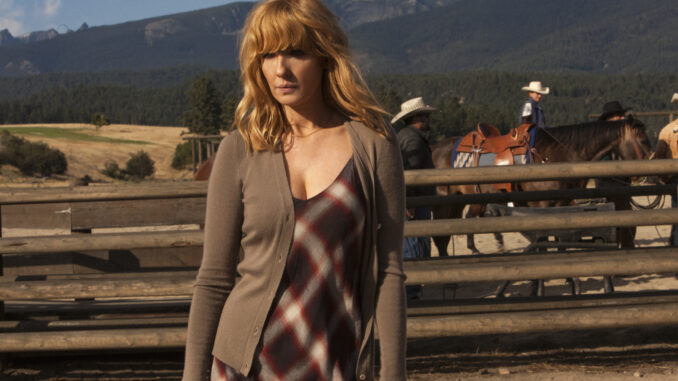
The Architects of Destiny: When a Cast Wills Its Own Conclusion
The final act of any grand narrative carries a weight disproportionate to its length. For the creators, it’s the ultimate thematic statement; for the audience, the long-anticipated payoff; and for the actors who have inhabited these worlds, it is often a deeply personal reckoning. So, when Kelly Reilly, the volcanic force behind Yellowstone’s Beth Dutton, states that the cast “willed the ending they deserve,” she isn’t merely offering a casual observation. She is articulating a profound truth about the symbiotic relationship between performer and character, a testament to how years of immersive dedication can subtly, yet powerfully, shape a story’s ultimate destination.
Reilly’s statement is not an assertion of literal magical power, nor a demand for contractual leverage. Instead, it speaks to a more subtle, yet potent, form of influence: the deep understanding and fierce advocacy that actors develop for the characters they embody for years. Consider the sprawling, morally ambiguous epic that is Yellowstone. For Reilly, Cole Hauser, Kevin Costner, Wes Bentley, and the entire ensemble, their roles are not mere costumes donned for a season; they become extensions of their artistic selves. They live and breathe the Montana air, grapple with the Dutton family’s cursed legacy, and feel the searing betrayals and fierce loyalties as if they were their own. This immersion grants them an unparalleled insight into the characters’ inner lives, their unarticulated desires, and the narrative trajectories that would feel not just satisfying, but true to their essence.
To “will” an ending, in this context, is to become an indefatigable advocate for narrative integrity. Imagine Kelly Reilly, after years of portraying Beth’s fractured psyche, her unwavering devotion to Rip, and her simmering hatred for Jamie, engaging in discussions with Taylor Sheridan. Her interpretation isn’t theoretical; it’s visceral. She knows, perhaps better than anyone, what kind of resolution Beth would claw for, what sacrifices she’d make, and what forms of justice or peace might resonate with her tormented soul. This isn’t dictating the plot; it’s an informed collaboration, born of living within the character’s skin. It’s the subtle shift in a line reading, the impassioned conversation in a writer’s room, the collective energy on set that leans towards a particular outcome because it feels right, feels earned.
The “deserve” factor, then, becomes multi-layered. Firstly, the characters themselves “deserve” an ending that honors their journey. Beth Dutton deserves a fierce, uncompromising conclusion that either brings her hard-won peace with Rip, or a final, cataclysmic act of devotion to her father. John Dutton deserves to see his ranch secured, his legacy cemented, even if it costs him everything. Jamie, for all his weakness and villainy, deserves a definitive resolution to his internal conflict, perhaps redemption, or perhaps ultimate damnation – but never an arbitrary fade-out. The actors, as the closest custodians of these fictional lives, feel this imperative intensely. They want the characters they’ve poured their souls into to find their narrative apotheosis, to reach a destination that resonates with every agonizing step they’ve taken.
Secondly, the cast themselves “deserve” a fulfilling capstone to their years of work. For the lead actors of a show as massive and demanding as Yellowstone, it represents a significant portion of their professional lives. They’ve sacrificed, committed, and given their emotional selves to these roles. To conclude such an epic saga with anything less than a compelling, conclusive, and character-driven finale would be, in a sense, a disservice to their own artistic investment. Their “will” is born from a desire for their prodigious efforts to culminate in something memorable, something that will stand the test of time and leave audiences truly satisfied.
Ultimately, Kelly Reilly’s poignant observation illustrates the unique magic of long-form storytelling. It underscores that while a writer crafts the blueprint, the actors, through their deep immersion and unwavering commitment, become co-architects of destiny. Their collective “will” is the powerful, almost invisible force that pushes the narrative towards an ending that isn’t just penned on a page, but felt in the bones – an ending that truly deserves the epic journey that preceded it, for both the characters and the dedicated souls who brought them to life.
